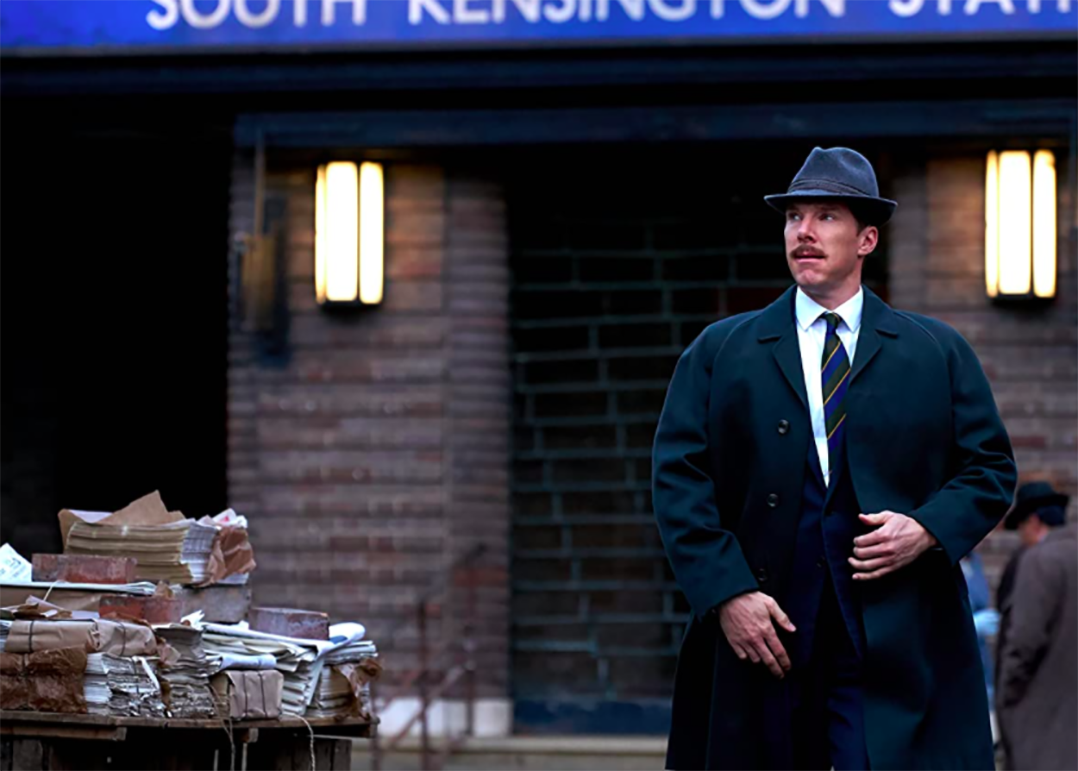Greville Wynne was a British businessman who helped extract secret intelligence from the Soviets regarding their nuclear arms program during the early 1960s. After his capture, he spent time in a Soviet prison before his release in an exchange for a Russian spy. Wynne’s story comes to life in the new film “The Courier,” directed by Dominic Cooke, whose last effort was the 2017 Saoirse Ronan vehicle “On Chesil Beach.”
“The Courier” would have us believe Wynne was selected by British and American intelligence to pass secrets back and forth because of his relative obscurity as a businessman currently involved in opening up Eastern European markets to Western raw materials. It would seem a logical next step for Wynne to establish such a market in the huge Soviet Union. Using Wynne (who would have no apparent interest in espionage) to transport secret information was a brilliant plan. How involved Wynne was in actual knowledge of the data he carried back and forth will likely never be known, but Tom O’Connor’s original screenplay absolves Wynne of almost all guilt.
Which makes Benedict Cumberbatch an interesting choice to play Wynne, as his characters are often what we call the smartest in the room (as in “The Imitation Game”). Here, Cumberbatch plays the part of a simple man caught up in a plot “above his pay grade” – simply a cog in the great gear of Cold War operations. But as usual, Cumberbatch is completely convincing. He plays Wynne as smart, but (at least initially) oblivious to the proceedings which encapsulate him.
His Soviet counterpart is Oleg Penkovsky, a military colonel who tipped off British intelligence to the Soviet placement of missiles in Cuba, which led to the 1962 Cuban Missile Crisis. He’s played by Georgian actor Merab Ninidze – very similarly to Mark Rylance’s KGB spy character in Steven Spielberg’s “Bridge of Spies,” in that we never know exactly how much Penkovsky knows. He seems willing to share only that which Wynne must know to complete each transaction.
The ongoing assumption must be that Penkovsky is being watched at all times. Therefore, Wynne and Penkovsky make the extra effort to meet one another’s families, and to become actual friends – as businessmen would do in an effort to open up the Soviet market to Western goods. The two men never lose sight of their cover, and it works to their advantage for many months, and many trips to and from Russia and England. When Penkovsky is captured by Soviet authorities, Wynne makes one last trip to Moscow to help his friend defect to the West.
Rachel Brosnahan is not particularly convincing as the American CIA agent who worked with British intelligence to establish Wynne as the West’s go-between with Penkovsky. But Irish actress Jessie Buckley is superb as Wynne’s wife Sheila, whose (perhaps logical) assumption is that her husband is having an affair with a woman in Moscow. While I kept hoping for Buckley (“Wild Rose”) to have a “come to Jesus” scene, a la Beatrice Straight in “Network,” she downplays the anger angle in favor of a more subtle approach. Her best scene comes when her character learns the truth, and then feels remorse for doubting her husband’s fidelity. It’s a small role, played brilliantly.
As “The Courier” progressed, I couldn’t help but notice the similarities with “Bridge of Spies.” Both stories are true, and both stories involve Cold War prisoner exchanges with the Soviet Union. I don’t question that “The Courier” is an interesting and well-made film; I do question its necessity, coming just five years after the superior Spielberg picture.
Most of “The Courier” works. It does hold our interest. Abel Korzeniowski’s score and Sean Bobbitt’s cinematography make up for a story riddled with spy film cliches. We’re on the edge of our seats through most of the second half. But this film will inevitably invite comparison with “Bridge of Spies,” and in this respect, “The Courier” simply lacks the tension of the Spielberg film.



